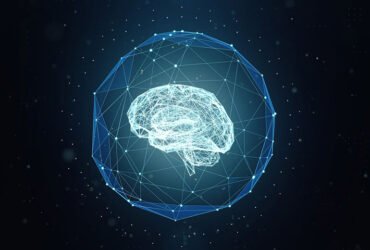
- January 8, 2020
- ziglertech@gmail.com
- Business
In marketing analytics, a marketing and sales funnel is the set of steps a visitor goes through before making a purchase. More and more, this customer’s journey includes a diverse set of touchpoints, involving both push and pull:
1. A Customer Journey Can Include Many Touchpoints
Historically, organizations have sent the same messages to all customers, using the same media channels. But, in the modern world, this may be perceived as SPAM that annoys customers and pushes them away. The diagram below (Figure 2) shows the traditional approach in action – every customer sees the same sequence of touchpoints.

The most important use cases of Natural Language Processing are:
Lorem ipsum dolor sit amet, consectetur adipiscing elit, sed do eiusmod tempor incididunt ut labore et dolore magna aliqua. Ut enim ad minim veniam, quis nostrud exercitation ullamco laboris nisi ut aliquip ex ea commodo consequat. Duis aute irure dolor in reprehenderit in voluptate velit esse cillum dolore eu fugiat nulla pariatur.
2. When All Customers Receive the Same Outbound Marketing Content
More sophisticated marketers have applied customer segmentation to their customer database. They group customers into segments according to their demographics, creating different customer journeys within each customer segment. Then, they send the same messages, using the same media, to all customers within each segment. This is a marked improvement on the previous approach, but not every customer within a segment is the same. The customer segments are typically grouped by demographics and not according to the content preferences of the customers.
3. When All Customers Within a Segment Receive the Same Marketing Content
All the data that is used for either building or testing the ML model is called a dataset. Basically, data scientists divide their datasets into three separate groups:
- Training data is used to train a model. It means that ML model sees that data and learns to detect patterns or determine which features are most important during prediction.
- Validation data is used for tuning model parameters and comparing different models in order to determine the best ones. The validation data should be different from the training data, and should not be used in the training phase. Otherwise, the model would overfit, and poorly generalize to the new (production) data.
- It may seem tedious, but there is always a third, final test set (also often called a hold-out). It is used once the final model is chosen to simulate the model’s behaviour on a completely unseen data, i.e. data points that weren’t used in building models or even in deciding which model to choose.
It’s not by any means exhaustive, but a good, light read prep before a meeting with an AI director or vendor – or a quick revisit before a job interview!
Aron Larsson
– CEO, Strategy Director
Lorem ipsum dolor sit amet, consectetur adipiscing elit, sed do eiusmod tempor incididunt ut labore et dolore magna aliqua. Ut enim ad minim veniam, quis nostrud exercitation ullamco laboris nisi ut aliquip ex ea commodo consequat. Duis aute irure dolor in reprehenderit in voluptate velit esse cillum dolore eu fugiat nulla pariatur.
Categories
- Artificial Intelligence (1)
- Business (4)
- Natural Language Processing (1)
- NLP (1)
- Technology (4)
Tags
Newsletter
Get regular updates on data science, artificial intelligence, machine







